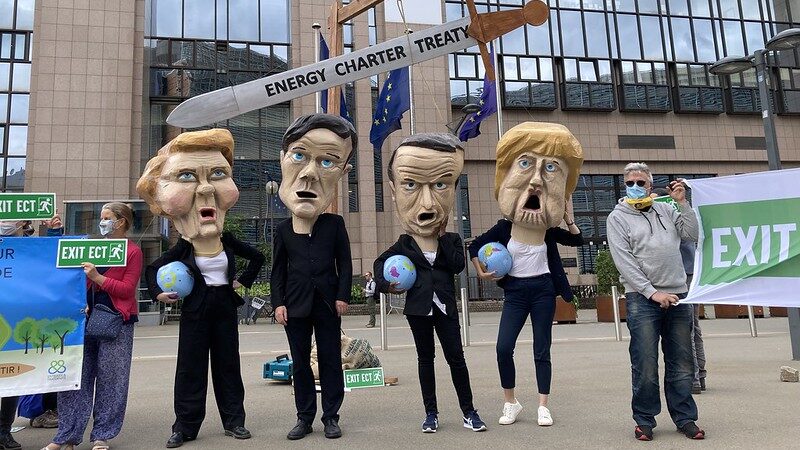The European Commission has told member countries that a joint EU exit from a controversial international energy treaty appears inevitable, according to a document seen by Reuters, with some of them already announcing they would leave the accord over climate concerns.
The 1998 Energy Charter Treaty, which has around 50 signatories including European Union countries, was designed to protect companies in the energy industry by allowing them to sue governments on policies affecting their investments.
But in recent years it has been used to challenge policies that require fossil fuel plants to shut – raising concerns that it is an obstacle to addressing climate change.
France, Germany, the Netherlands, Poland and Spain have already announced plans to quit the treaty, increasing pressure on Brussels to coordinate an EU-wide withdrawal.
In a document shared with EU countries and seen by Reuters, the European Commission said the “most adequate” option would be for the EU and its 27 member states to leave.
“A withdrawal of the EU and Euratom from the Energy Charter Treaty appears to be unavoidable,” the document said.
A spokesperson for the European Commission confirmed it would recommend an EU exit and present the suggestion to diplomats from member countries in a meeting on Tuesday.
Remaining part of this treaty would “clearly undermine” the EU’s climate targets, the Commission said.
Leavings not easy
The treaty’s 20-year sunset clause means that fossil fuel companies from other ECT states will still be allowed to use the ECT to sue EU countries until at least 2043.
Italy left the treaty in 2016. But last year, a British oil and gas company used it to force the Italian government to pay €190m ($204m) over their decision to ban oil drilling near Italy’s shoreline.
The EU governments who are pushing to leave hope to enforce a joint agreement stopping fossil fuel companies based in the EU from suing EU states.
Denmark to put CO2 in seabed in step towards carbon negativity
But they would need to agree such a deal with other willing treaty members to avoid future lawsuits such as from Japan, Switzerland and the United Kingdom.
The European Commission’s said that non-EU ECT members have shown no interest in ending protections for their fossil fuel investments in the EU.
“For the time being, no non-EU Contracting Party has indicated they would be open to such a solution,” said its paper.
Reform attempts
The European Commisison has spent the last few years pushing to modernise the ECT by phasing out investment protection for fossil fuels.
Last June, their negotiators overcame resistance from Japan and Central Asian states to reach consensus on allowing ECT members to decide what investments they protect.
The EU and UK announced they would end protection for new fossil fuel investments and to phase out protection for existing fossil fuel investments in ten years time.
France seeks EU loophole for French Guiana to power space sector with biofuels
This was a slower phase-out than climate campaigners and some EU governments hoped for but was the most that other EU states would sign up for.
At the end of last year, several big European countries said they would quit the treaty despite the reforms. The reforms were never ratified.
Given the number of countries quitting individually, renegotiating the treaty does not seem feasible, the European Commission said.
Fifteen members needed
An EU exit would require support from at least 15 EU countries and the European Parliament, which has already backed a resolution calling for the idea.
The reforms’ failure means that fossil fuel investments in the UK and from UK companies will continue to be protected indefinitely unless the UK leaves the treaty.
A spokesperson for the UK government told Climate Home: “The UK is closely monitoring the situation surrounding the Energy Charter Treaty’s modernisation process, including the positions taken by other Contracting Parties.”
They added: “We have been a strong advocate for updating the Treaty to ensure it’s aligned with modern energy priorities, modern international treaty practice, and international commitments on climate change.”
This article was updated on 9 February to include the UK government’s response
